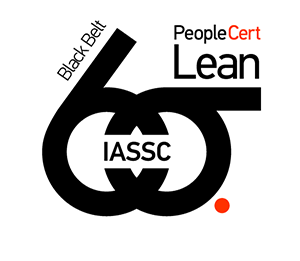Unable to find what you're searching for?
We're here to help you find itIASSC® Certified Lean Six Sigma Black Belt™ Course Overview
The Lean Six Sigma Black Belt course is an advanced program designed for professionals aiming to become experts in the Lean Six Sigma methodology. This comprehensive training equips learners with the skills to lead complex improvement projects and drive significant efficiency gains in various business processes.
Module 1: Define Phase lays the foundation, introducing Six Sigma, its fundamentals, how to select projects effectively, and identifying elements of waste.
Module 2: Measure Phase deepens the understanding through Process discovery, Six Sigma statistics, Measuring system analysis, and assessing process capability.
Module 3: Analyze Phase teaches analytical techniques for identifying root causes, including various statistical and Hypothesis testing methods for both normal and non-normal data.
Module 4: Improve Phase covers Process and regression modeling, designing experiments, and Experimental methods to optimize processes.
Module 5: Control Phase focuses on sustaining improvements through advanced experiments, Capability analysis, Lean controls, Defect controls, statistical process control (SPC), and developing Six Sigma control plans.
By completing this Lean Sigma Black Belt certification, learners will acquire the expertise to lead strategic projects, improve quality, and enhance operational efficiency, making them valuable assets to any organization.
Purchase This Course
USD
View Fees Breakdown
| Course Fee | 3,300 |
|
Total Fees (with exam) |
3,300 (USD) |
USD
View Fees Breakdown
| Course Fee | 2,550 |
|
Total Fees (with exam) |
2,550 (USD) |
USD
View Fees Breakdown
| Flexi Video | 16,449 |
| Official E-coursebook | |
| Exam Voucher (optional) | |
| Hands-On-Labs2 | 4,159 |
| + GST 18% | 4,259 |
|
Total Fees (without exam & Labs) |
22,359 (INR) |
|
Total Fees (with Labs) |
28,359 (INR) |
Select Time
Select Date
| Day | Time |
|---|---|
|
to
|
to |
♱ Excluding VAT/GST
You can request classroom training in any city on any date by Requesting More Information
Inclusions in Koenig's Learning Stack may vary as per policies of OEMs
Scroll to view more course dates
You can request classroom training in any city on any date by Requesting More Information
♱ Excluding VAT/GST
*Inclusions in Koenig's Learning Stack may vary as per policies of OEMs
Suggestion submitted successfully.
Koenig Learning Stack
Inclusions in Koenig's Learning Stack may vary as per policies of OEMs



